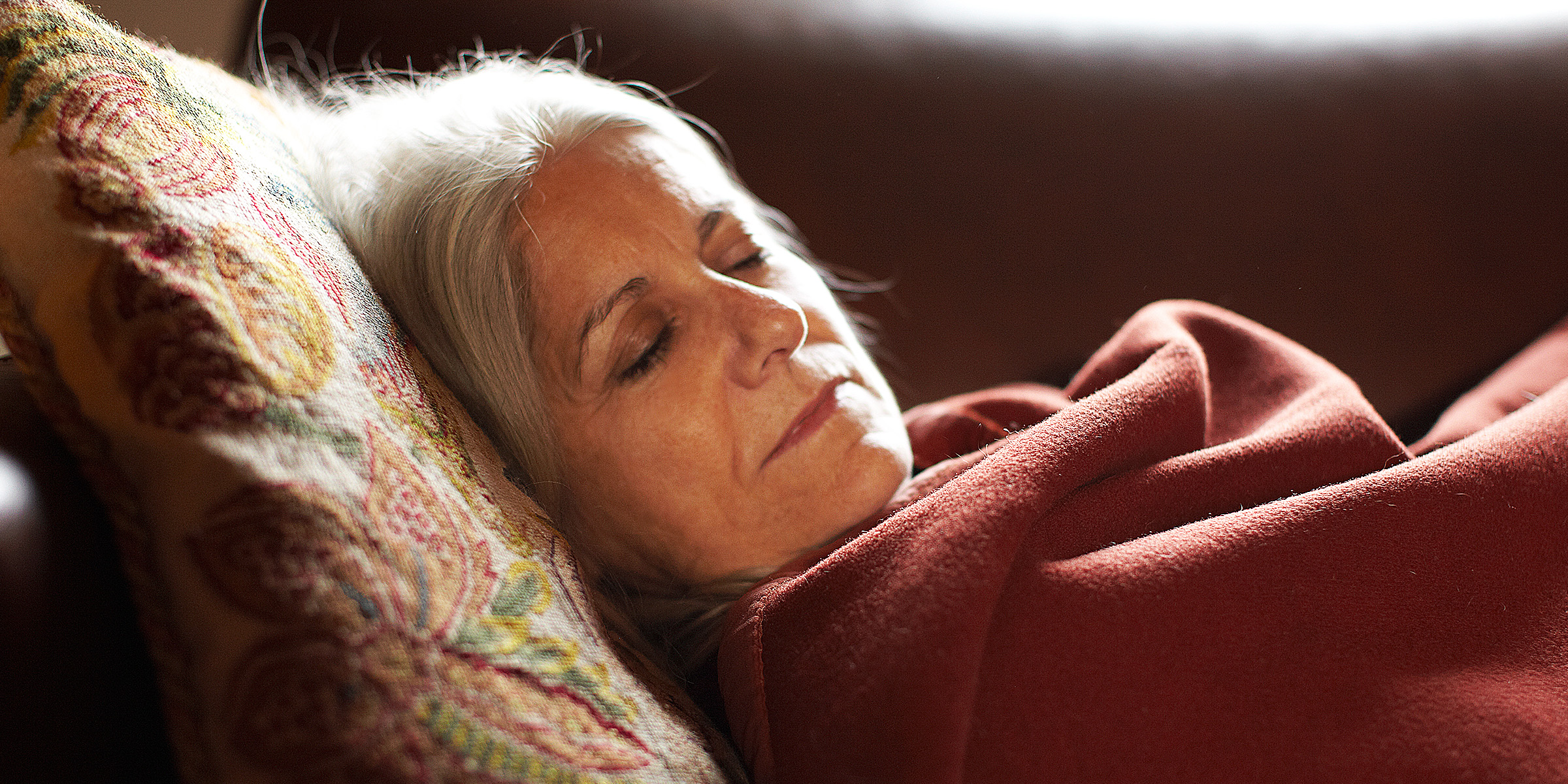
A Guide to Sleeping Better After 60
Struggling to get quality sleep as you age? Discover practical, proven tips to help you fall asleep faster, stay asleep longer, and wake up feeling refreshed.
As we age, getting a good night's sleep can become more challenging. But quality rest remains essential for physical health, mental clarity, and overall well-being.

A woman laying in bed with her eyes open | Source: Pexels
If sleep has started to feel elusive after 60, the good news is that small, consistent changes can make a big difference. Here's a guide to help you sleep better — naturally and sustainably.
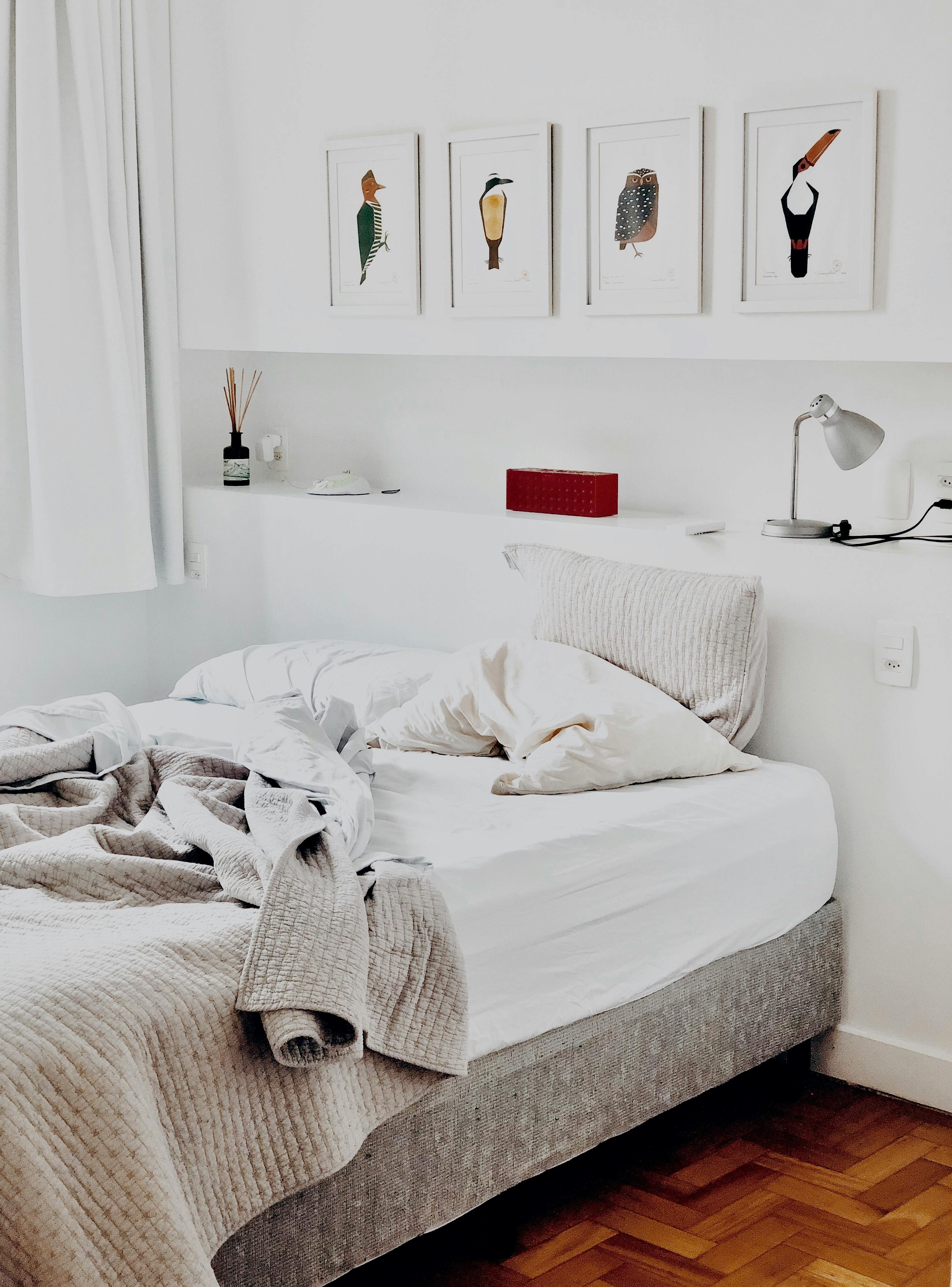
A bed | Source: Pexels
1. Stick to a Sleep Schedule
One of the most effective habits is also one of the simplest — go to bed and wake up at the same time every day. A consistent sleep-wake cycle reinforces your body's natural circadian rhythm, making it easier to fall asleep and wake feeling refreshed.

Feet poking out from under a blanket | Source: Pexels
2. Choose the Right Mattress
Considering how much time we spend in bed, the quality of your mattress matters. The best mattress for your needs can significantly improve both the comfort and duration of your sleep.
Adjustable beds, for example, help create optimal sleep positions and can reduce pain that interrupts rest. Some even offer anti-snore technology.
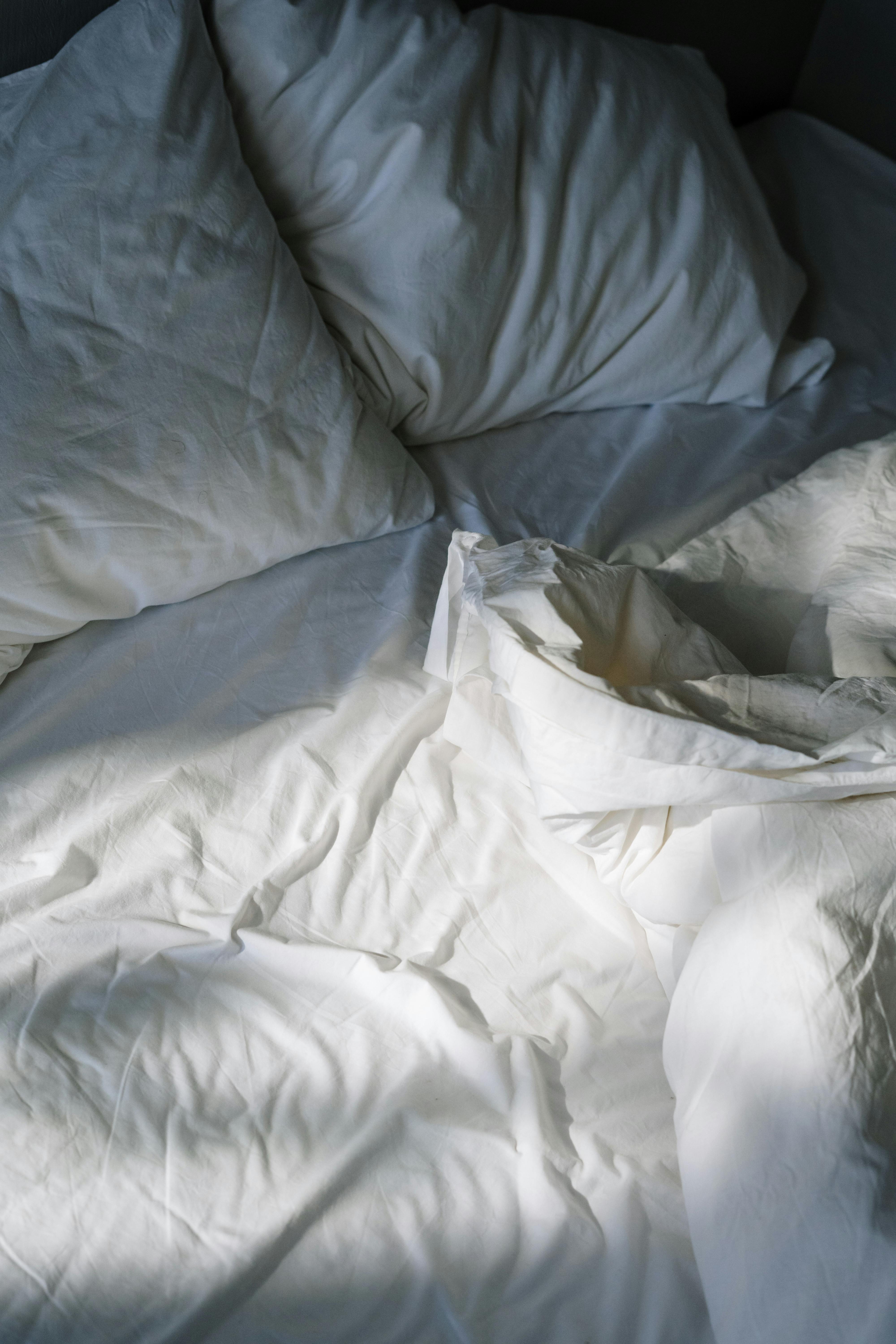
An unmade bed | Source: Pexels
3. Be Mindful of Evening Meals
Heavy meals late at night often lead to indigestion, which can make it harder to fall asleep. Aim to keep dinners and snacks light, especially in the hours leading up to bedtime.
It's also wise to avoid caffeine, nicotine, and alcohol close to bedtime, as all three can disrupt your ability to fall and stay asleep.
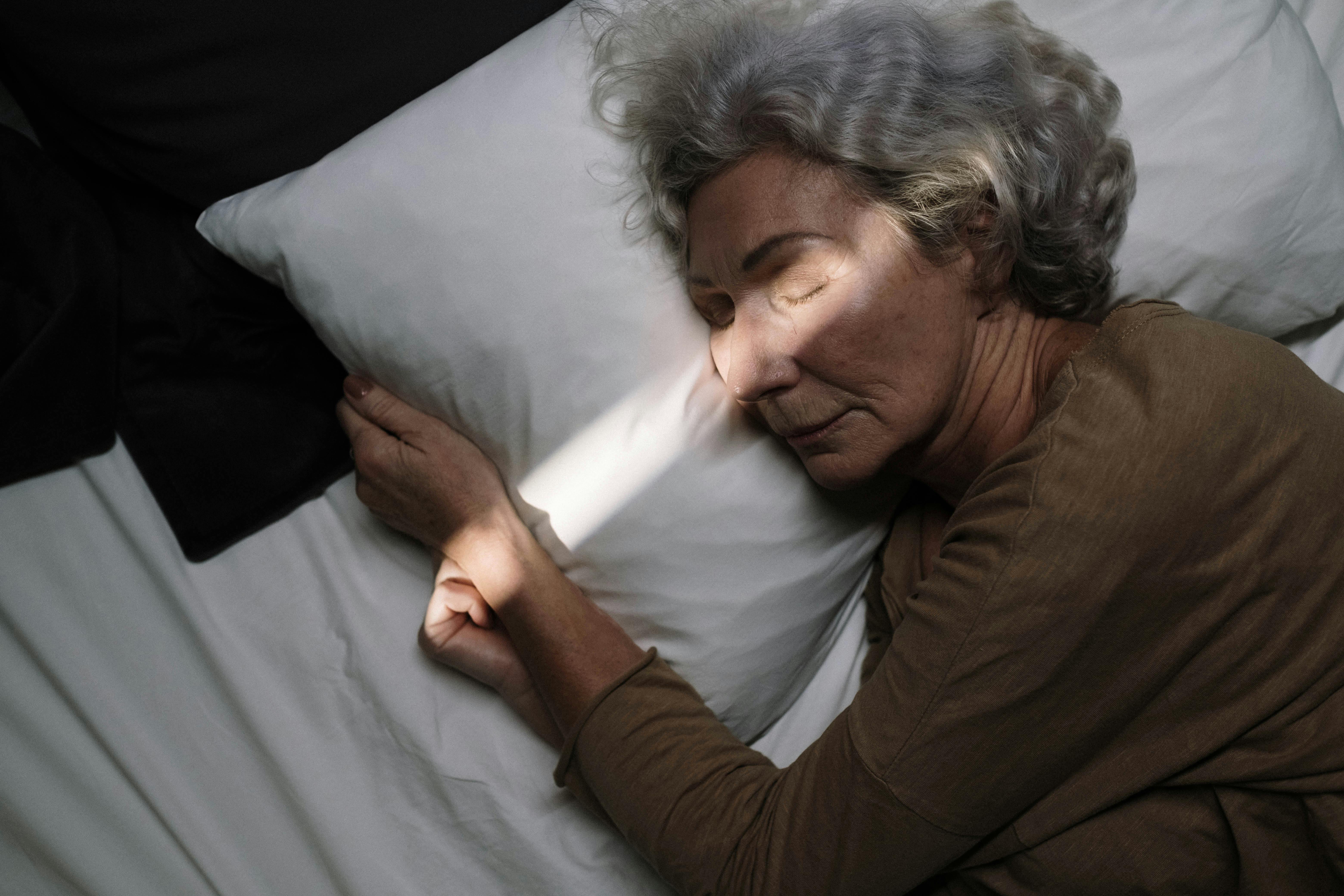
A sleeping woman | Source: Pexels
4. Keep Daytime Naps Short
While a quick nap can be restorative, too much daytime sleep can leave you wired at night. To avoid interfering with nighttime rest, limit naps to no more than one hour and try to keep them earlier in the day.
5. Create a Calming Bedtime Routine
A relaxing wind-down routine can signal to your brain that it's time to rest. Gentle activities like reading or listening to soft music can be effective. If stress is an issue, consider incorporating journaling or meditation into your nightly routine to help quiet your mind.
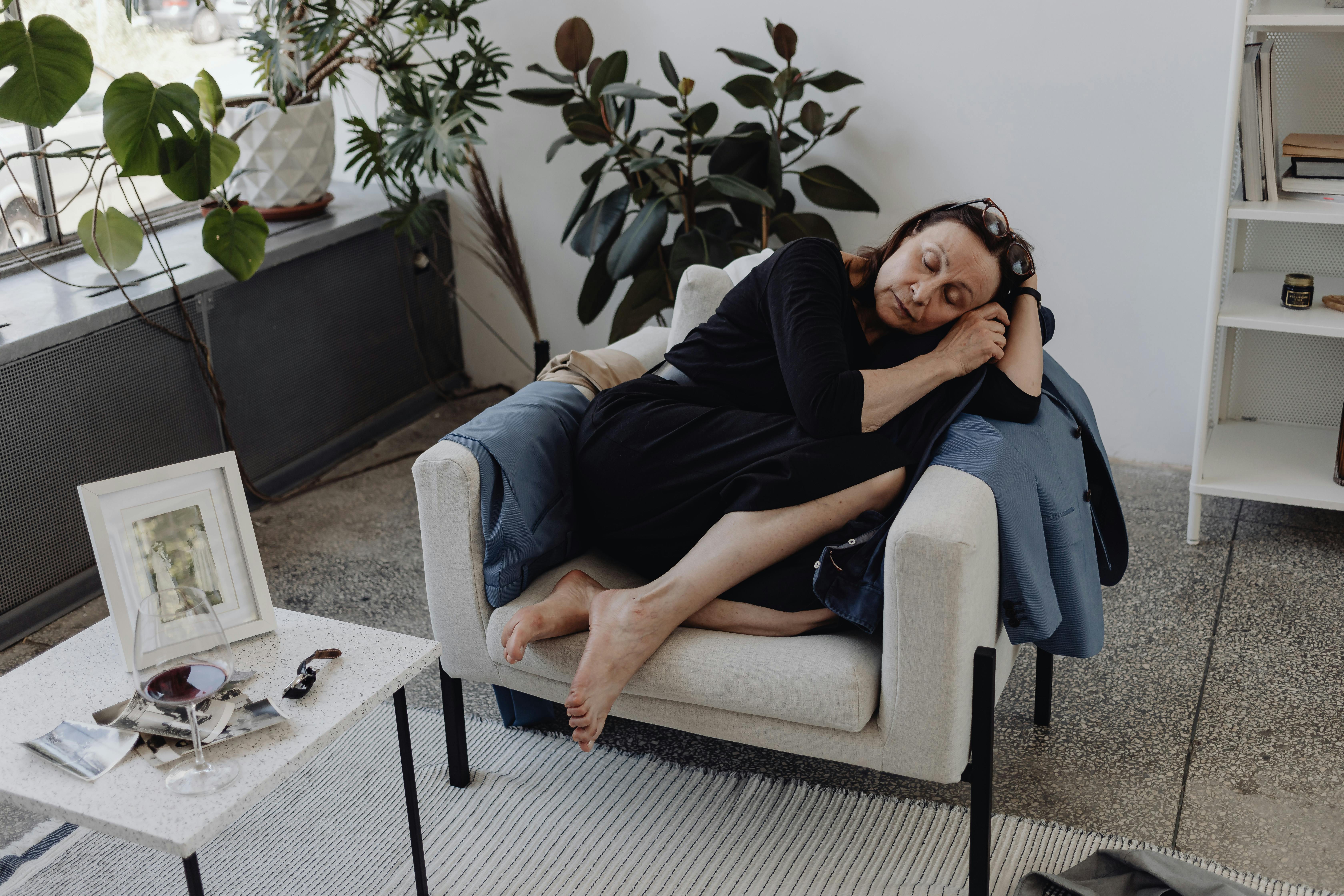
A woman napping on a chair | Source: Pexels
6. Unplug Before Bed
The blue light emitted from phones, tablets, TVs, and computers can interfere with your body's internal clock. To support natural sleep rhythms, power down all devices at least one hour before bed and keep them out of the bedroom entirely.
7. Stay Active During the Day
Regular physical activity can improve sleep quality. However, timing matters — try to avoid vigorous exercise too close to bedtime. Spending time outdoors during daylight hours may also help regulate your sleep cycle.

A sleeping woman | Source: Pexels
8. Manage Stress Effectively
Lingering worries can keep your mind racing long after you've turned out the lights. One strategy is to write down your concerns before bed and set them aside for tomorrow.
Simple stress-management habits, such as staying organized, setting priorities, and learning to delegate, can ease the mental load. Meditation may also help reduce anxiety and improve relaxation.
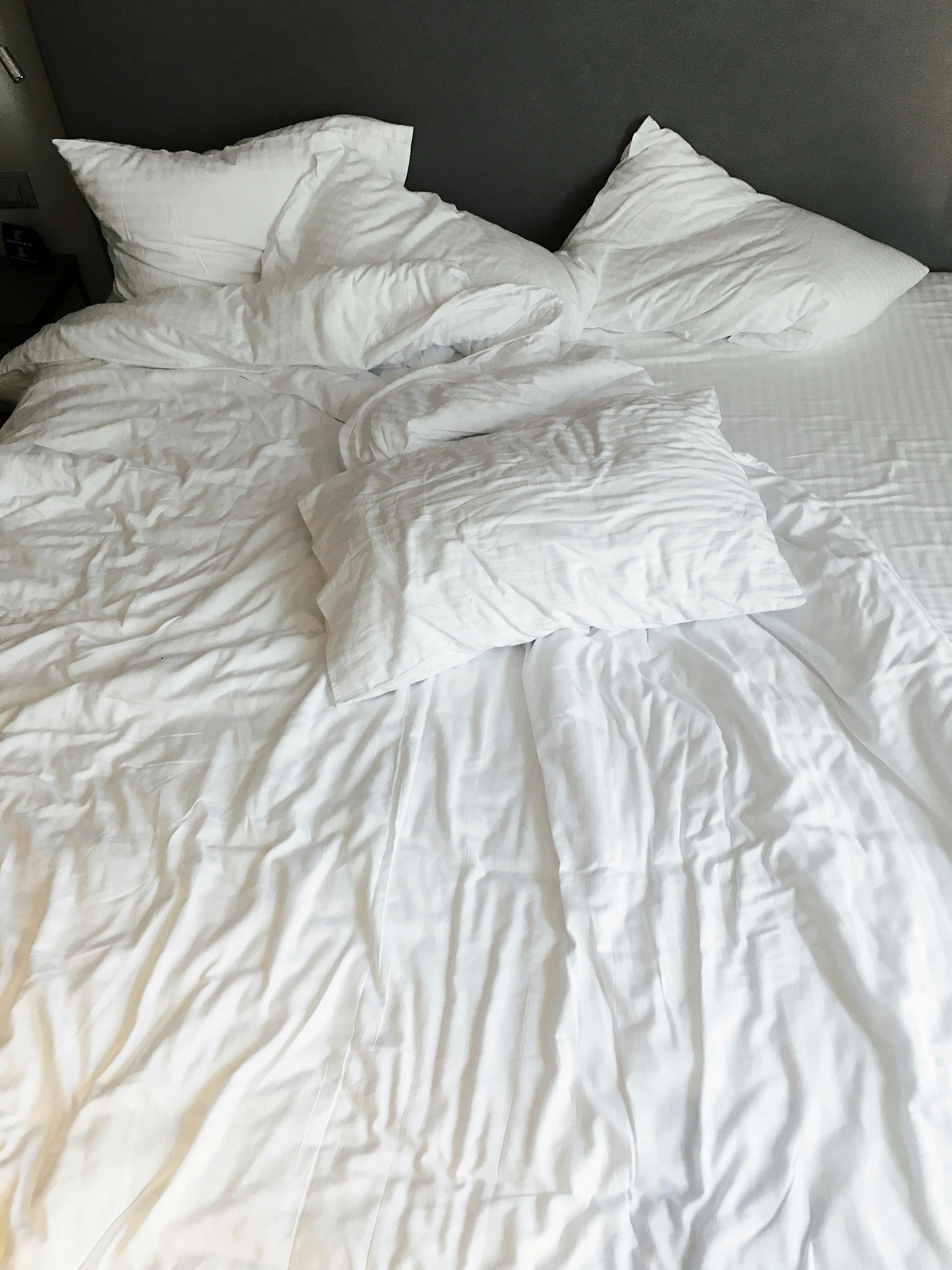
An unmade bed | Source: Pexels
Improving sleep after 60 doesn't require an overhaul — just a few mindful adjustments can lead to more restful nights and better days. And for more targeted strategies on creating the right bedtime habits, explore our tips for establishing an ideal sleep routine as an older adult.
The information in this article is not intended or implied to be a substitute for professional medical advice, diagnosis or treatment. All content, including text, and images contained on AmoMama.com, or available through AmoMama.com is for general information purposes only. AmoMama.com does not take responsibility for any action taken as a result of reading this article. Before undertaking any course of treatment please consult with your healthcare provider.
